Author(s)
JJJJJerome Ellis
Designed by Rissa Hochberger, with additional design by JJJJJerome Ellis and Kelvin Ellis, the book The Clearing is the eighth title in Wendy’s Subway’s Document Series, an interdisciplinary publishing initiative highlighting the work of time-based artists in printed form.
“Dysfluent Waters” is a part of musician and writer JJJJJerome Ellis’s multi-faceted project The Clearing (book published by Wendy’s Subway and album of the same name released by NNA Tapes, 2021). Conceiving of the forest and its clearings as “sites of resistant black oralities for centuries,” Ellis explores how stuttering, blackness, and music can figure within practices of refusal against the hegemonic governance of time, speech, and encounter.
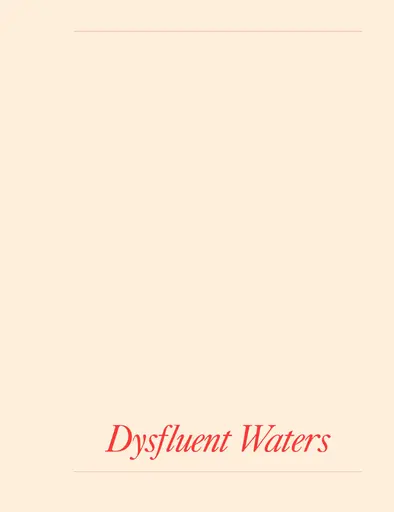
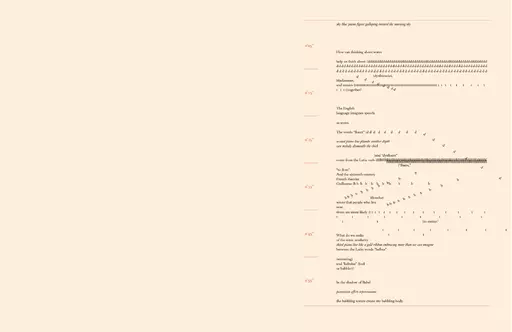
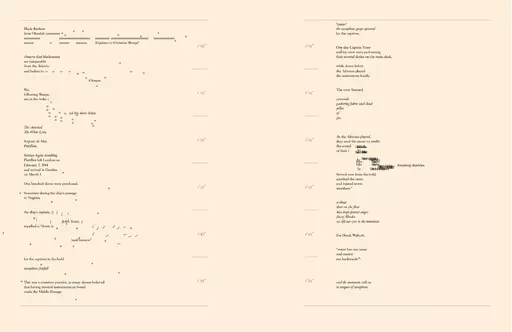
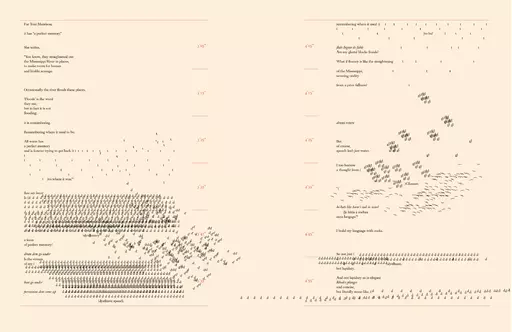
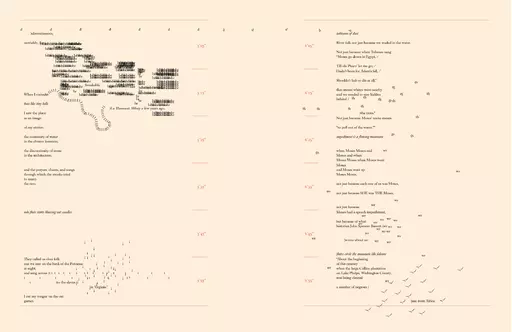
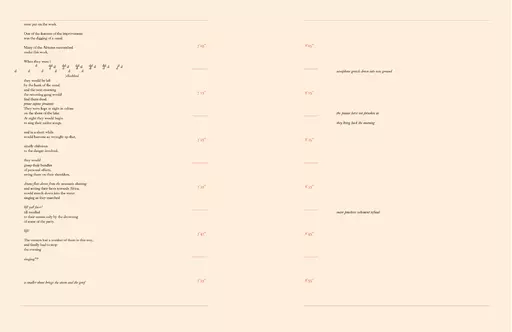
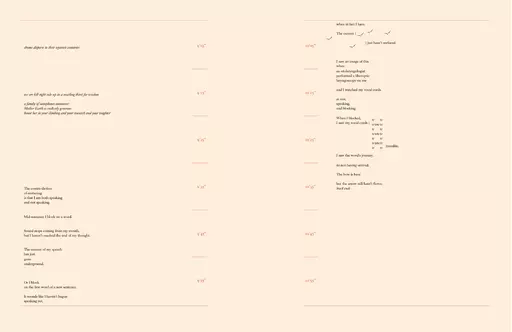
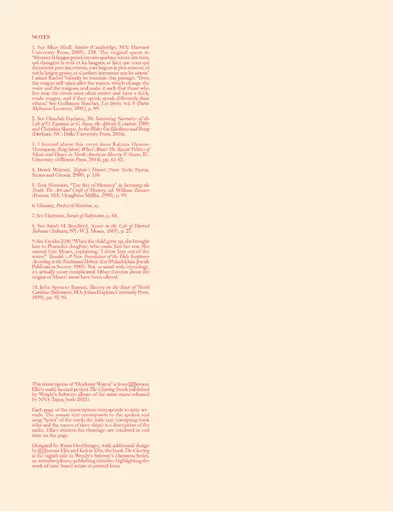
The audio track and corresponding transcription above are from JJJJJerome Ellis’s multi-faceted project The Clearing (book published by Wendy’s Subway; album of the same name released by NNA Tapes, both 2021).
Each page of the transcription corresponds to sixty seconds. The roman text corresponds to the spoken and sung “lyrics” of the track; the italic text (excepting book titles and the names of slave ships) is a description of the audio. Ellis’s stutters—his clearings—are rendered in real time on the page.
Related
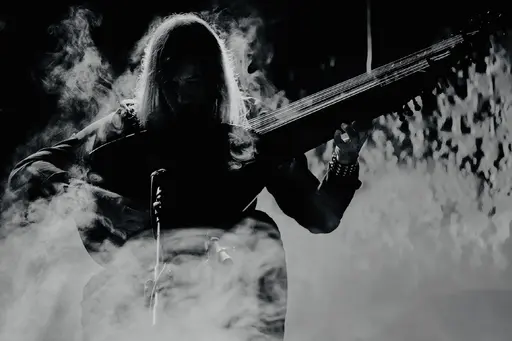
“Rhythm Travel” (1995) was published in Amiri Baraka’s short story collection, Tales of the Out & the Gone (Brooklyn: Akashic Books, 2007), republished here with kind permission of Akashic Books.
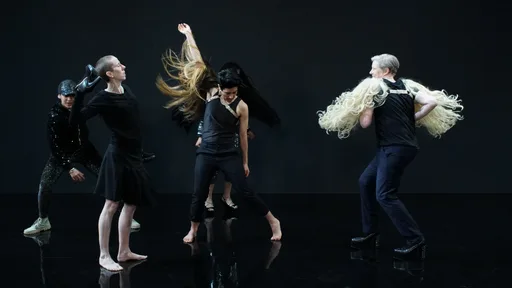
Temporal drag, erotohistoriography, chronomornativity, horniness under capitalism, rhythm, dancing, and crip time.
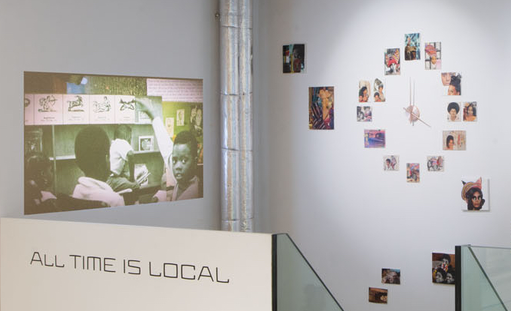
Black Quantum Futurism (Camae Ayewa and Rasheedah Phillips) in conversation with Jeanne van Heeswijk and Rachael Rakes.
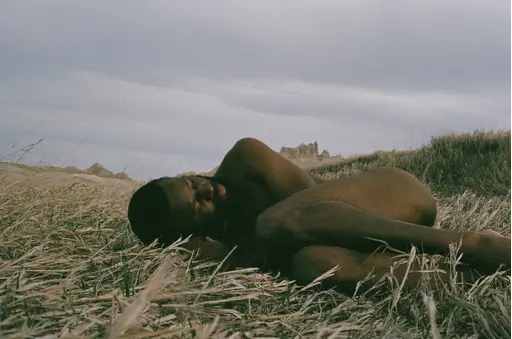
“The Clearing: Music, Dysfluency, Blackness, and Time” was originally published in Journal of Interdisciplinary Voice Studies, 5, no. 2, 2020, pp. 215–233 and is republished here in revised form with kind permission of the author.
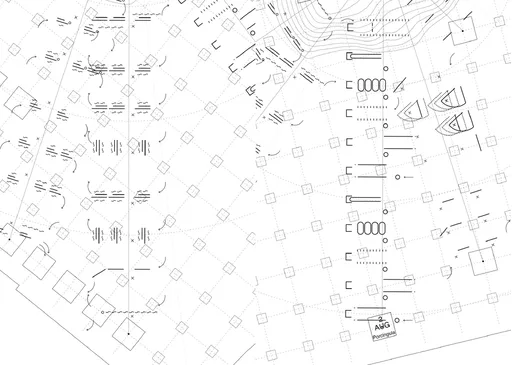
When Indigenous communities are asked to provide proof of their connection to ancestral lands, what Western legal forums accept as documentation does not truly represent or respect tribal culture and traditional formats of knowledge transfer.
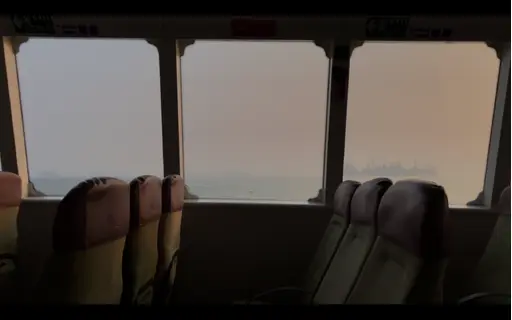
How do we reckon with our attachments to place, and their knotted historical relations? A meditation on maritime trade routes, SEA – SHIPPING – SUN (2021), is a short film directed by Tiffany Sia and Yuri Pattison shot over the span of 2 years to render a simulated duration of a day, from The film is set against a soundtrack of shipping forecasts from archival BBC Radio 4 broadcasts. The sun emerges and disappears, again and again.dawn until dusk.
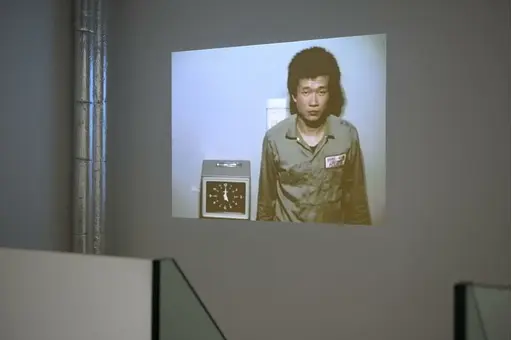
In this essay, Amelia Groom responds to Tehching Hsieh’s One Year Performance 1980–1981: Time Clock Piece (1980–1981), one of the works on view as part of the No Linear Fucking Time exhibition at BAK, basis voor actuele kunst, Utrecht. Through a reading of Dolly Parton’s contemporaneous antiwork anthem 9 to 5 (1980), Groom reflects on historical shifts in the ways that workers have been and continue to be exploited through techniques and technologies of time.

Grappling with the imposed linearity of timespace as a fundamental feature of colonial violence, this essay by Promona Sengupta (also known as Captian Pro of the interspecies intergalactic FLINTAQ+ crew of the Spaceship Beben) proposes a mode of time travel that is “untethered from colonial imaginations of the traversability of time and space.”
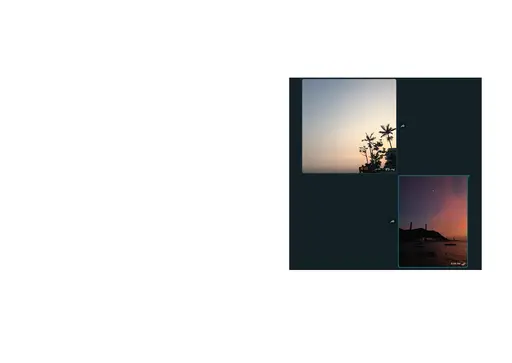
Weird Times (2021), is a 30-page chapbook by artists Tiffany Sia and Yuri Pattison on time-telling and hegemony. Featuring writing by Sia and images selected by Pattison, it is a brief history of the development of time-keeping technologies. The clock is disassembled as a political tool, a metronome of coercion and an accelerant of war power. Out of these mechanisms, resistant counter-tempos emerge.
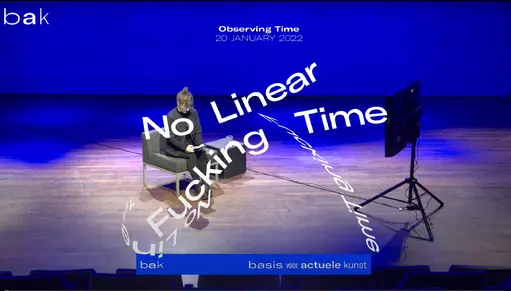
An online conversation with performance artist Tehching Hsieh, writer Amelia Groom, and writer and curator Adrian Heathfield, moderated by BAK curator of public practice Rachael Rakes on 20 January 2022. The conversation takes Hsieh’s work as a starting point in addressing performative time, labor time, gaps, and rhythms of endurance, among other things.
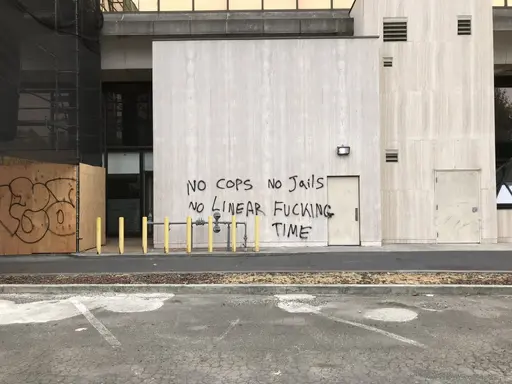
The “No Linear Fucking Time Bibliography” is an evolving resource which compiles selected scholarly and artistic texts relating to the various strands of study involved in this project.
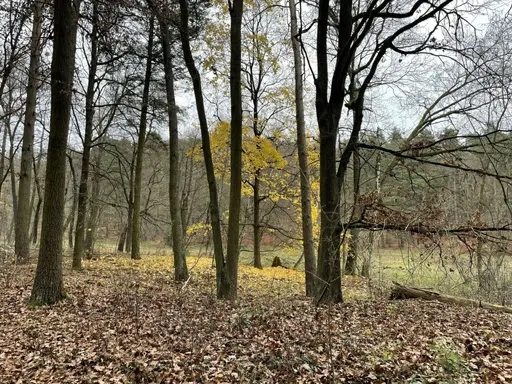
In “Reclaiming Time: On Blackness and Landscape” (first published in PN Review 257 in 2021), poet Jason Allen-Paisant traces the racialized social contexts and modern environmental constructs that “disproportionately rob Black lives of the benefits of time.”
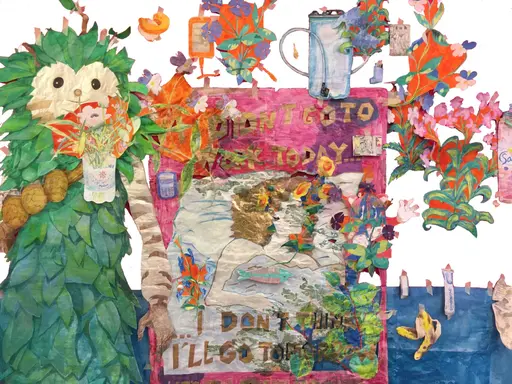
While walking through the “Nothing To Declare” arrivals gate at London Stansted Airport, Sam Keogh is confronted by three border guards: a pig, a unicorn, and a worried cartoon clock.

In this conversation with Walidah Imarisha (first published in Toward the Not Yet: Art as Public Practice, published by BAK and MIT Press, 2021), the writer and activist outlines her concept of “visionary fiction” as an imaginative practice to emancipate futures from the stronghold of linear time.
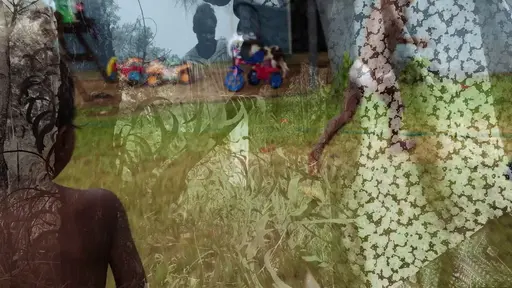
Drawing from her work as part of the Karrabing Film Collective, Elizabeth A. Povinelli’s essay “In Some Places the Not-Yet Has Long Been Already” (which first appeared in Toward the Not Yet: Art as Public Practice, published by BAK and MIT Press, 2021) contrasts the temporal orientation of late settler liberalism—which is troubled by the coming catastrophes of climate collapse—with the ancestral catastrophes of coloniality and enslavement, which are both past and present.

Designed by Rissa Hochberger, with additional design by JJJJJerome Ellis and Kelvin Ellis, the book The Clearing is the eighth title in Wendy’s Subway’s Document Series, an interdisciplinary publishing initiative highlighting the work of time-based artists in printed form.
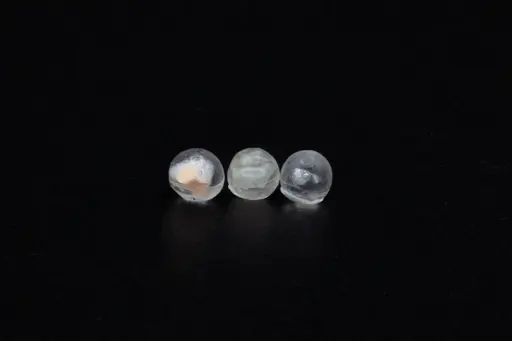
In her text “Dearest Zen (Letters to Lichen),” artist and scientist Adriana Knouf presents future love letters written to lichens, symbiotic organisms of fungi and algae or cyanobacteria.

In “Immortals: On the Ancient Future Lives of Stone and Plastic,” Marianne Shaneen blends stories, histories, and ontologies of two substances: stone and plastic.
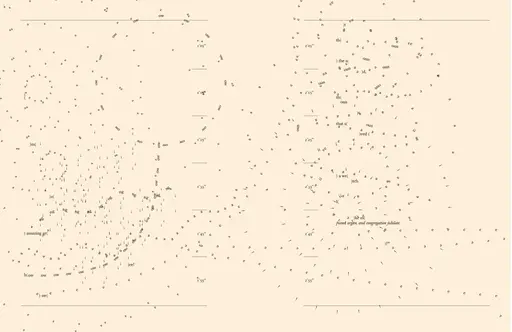
“The Clearing: Melismatic Palimpsest” is a part of musician and writer JJJJJerome Ellis’s multi-faceted project The Clearing (book published by Wendy’s Subway and album of the same name released by NNA Tapes, 2021). Conceiving of the forest and its clearings as “sites of resistant black oralities for centuries,” Ellis explores how stuttering, blackness, and music can figure within practices of refusal against the hegemonic governance of time, speech, and encounter.